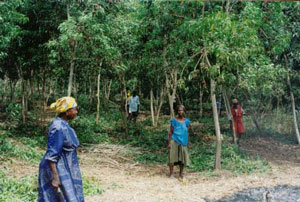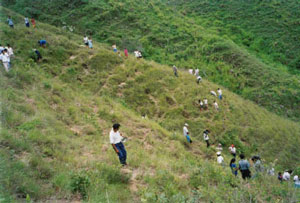In the last decade, the Amazonian community of Mamirauá has begun a participatory, low-impact forest management regime that is both increasing the benefits of forestry to local people and reducing its environmental impact.
In Papua New Guinea's Madang province, a group of customary land owners have created their own forestry operation designed to maximize local employment and income and manage the forest sustainably.
In diverse parts of Mexico, indigenous and peasant communities like El Balcón in Guerrero state have developed sophisticated social enterprises that invest in the resource and its conservation, generate important employment and income, and support social infrastructure and cultural revitalization.
Around the world, thousands of indigenous and other local communities are taking control of their forest resources and putting them to use. And, as they do, the evidence grows that community forestry can help alleviate rural poverty and improve forest conservation.
Yet many hurdles still stand in its way – unclear tenure rights, adverse policy and regulatory environments, and a lack of support to build the necessary managerial, technical and financial capacity.
This must change if community forest management and the enterprises based on it are to flourish.
Community forest management and enterprises: global issues and opportunities is an international conference that will bring together about 250 leaders of forest communities, public forest agencies, forest industry and conservation groups to share experiences in community forest management and enterprises from around the world. It will explore case-studies from Mamirauá, Madang, El Balcón and more than a dozen other community forests and debate the best ways of assisting the sustainable development of community-based operations.
It will also:
- raise global awareness about the contributions of and challenges faced by community forest management and associated community enterprises;
- generate proposals to strengthen the role of communities in forest management and forest-based enterprises; and
- identify priority steps for governments, industry and international organizations to promote community forest management and associated community enterprises.

